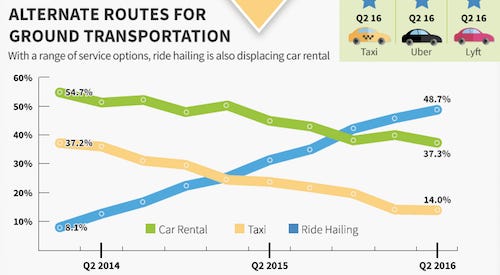WeViction.
WeWork gave Thinknum, a financial analysis startup, 30 minutes to vacate its office rental in midtown Manhattan last Friday (July 22) after it allegedly violated the office-space company’s membership agreement by scraping WeWork data. That Thinknum was gathering WeWork data came to light earlier in the week, when it published a “deep dive” on Medium suggesting that cancellations were rising among WeWork members—from a historical rate of 1.2%, to 6% more recently. Thinknum said the data was fair game because it was collected using WeWork’s API. WeWork disagreed, and sent Thinknum a cease-and-desist letter demanding the post be taken down and information behind it deleted by Saturday. The post has since been removed.
I am not sure who is in the right here, but in some ways it’s beside the point. This story seems less about what Thinknum did than how WeWork responded—quickly, aggressively, and with every intention of discrediting an analysis that criticized its $16 billion co-working platform. Many startups engage in some amount of myth-making, but in this realm WeWork excels. Its founders talk of “energy,” a “capitalistic kibbutz,” and the “We Generation.” They preach that the price of space in a WeWork or a WeLive (co-living), can’t be measured in square footage alone because of what it offers in terms of vibe and community. Negative press about WeWork—whether in Bloomberg or on Medium—threatens that mythology, which in turn threatens the WeWork valuation built at least partly on it. “My view is that it touches a nerve,” Greg Ugwi, one of Thinknum’s cofounders, told me shortly after their eviction on Friday. “A lot of private unicorns, they are determined to control the narrative. It’s people who get extremely vigilant about maintaining one glossy story, so anything that contradicts that, they react in irrational ways.” I think he’s exactly right.
“Arguably criminal.”
“It is a sad day when, in response to the filing of a commercial lawsuit, a corporate defendant feels compelled to hire unlicensed private investigators to conduct secret personal background investigations of both the plaintiff and his counsel,” is the first sentence of the damning opinion filed Monday (July 25) by a US district court judge in the price-fixing lawsuit against Uber, and get ready because here is the second: “It is sadder yet when these investigators flagrantly lie to friends and acquaintances of the plaintiff and his counsel in an (ultimately unsuccessful) attempt to obtain derogatory information about them.” The ruling is on the matter of Ergo, a private investigative firm that Uber hired to dig up dirt on the plaintiff in this lawsuit. Judge Jed Rakoff finds Ergo “was engaged in fraudulent and arguably criminal conduct.” He reaches this decision after a lengthy examination of emails between Uber’s legal team and Ergo, which include multiple warnings from Uber’s camp to keep the investigation “under the radar” and “discreet from a discovery perspective,” and which seem like precisely the kind of thing you wouldn’t want to document in an email from a discovery perspective. I know Uber is a tech company, but in the future its lawyers may want to consider the phone.
Master Plan.
Elon Musk last week released his much-anticipated “Master Plan, Part Deux,” laying out a four-part vision for Tesla (and SolarCity). In the last section, “Sharing,” Musk describes how Tesla’s vehicles will be used once the autonomous era truly arrives:
You will also be able to add your car to the Tesla shared fleet just by tapping a button on the Tesla phone app and have it generate income for you while you're at work or on vacation, significantly offsetting and at times potentially exceeding the monthly loan or lease cost. This dramatically lowers the true cost of ownership to the point where almost anyone could own a Tesla … In cities where demand exceeds the supply of customer-owned cars, Tesla will operate its own fleet, ensuring you can always hail a ride from us no matter where you are.
I added the emphasis on this last line, which also strikes me as the most interesting. Automakers have spent this year aligning themselves with ride-hailing companies as they brace for a future in which traditional car ownership gives way to shared mobility. General Motors with Lyft and Sidecar, Volkswagen with Gett, Toyota with Uber. But these deals have repeatedly avoided the question of ownership—in other words, when Uber rides are provided by self-driving cars, who will own and maintain those fleets? Musk had also historically deflected this question, declining in two consecutive earnings calls last year to say whether Tesla intended to supply autonomous vehicles to ride-sharing firms or “cut out the middleman and sell on-demand mobility services directly.” Based on “Master Plan, Part Deux,” the answer sounds a lot closer to the second.
Overtaking taxis.
Ride-hailing services have “overtaken taxi at an unprecedented pace” according to this Q2 2016 report from Certify, a company that sells travel and expense report software. In the second quarter, US business travelers relied on Uber for 73% of their rides and Lyft for 5%, compared to just 22% for yellow cabs. In the same period two years earlier, those numbers were basically flipped: taxi made up 74% of business traveler rides, Uber 26%, and Lyft less than 1%. In fact, Certify says ride-hailing has become so popular that it’s even overtaking car rentals as a means of ground transportation. Enterprise and Hertz can’t be happy about that.
Other stuff.
Fake Lincolns and More Adventures of an RNC Uber Driver. NBC reporter quits to drive for Lyft. Investors sick of Uber bleeding money in China. Breeze suspends car rental service. Airbnb hires Eric Holder. Airbnb thrilled to be paying taxes in LA. Yotel doesn’t “really do local.” Dollar Shave Club and the Disruption of Everything. GM’s first truly autonomous car will be on Lyft. Brazilian logistics startup Cargo raises $10 million. Seattle Judge Hears Challenge to Uber, Lyft Union Law. Philly emergency order lets Uber use older cars. Sallie Yoo is Uber’s top lawyer. Uber launches in West Virginia. New York’s taxi regulator cracks down on fatigued drivers. New York taxis cozy up with ride-hailing apps. She Drives Me. Demystifying unicorns. Bonfire of the unicorns. Brogan BamBrogan and the “Gang of Four.” If Writers and Poets Billed by the Hour.





